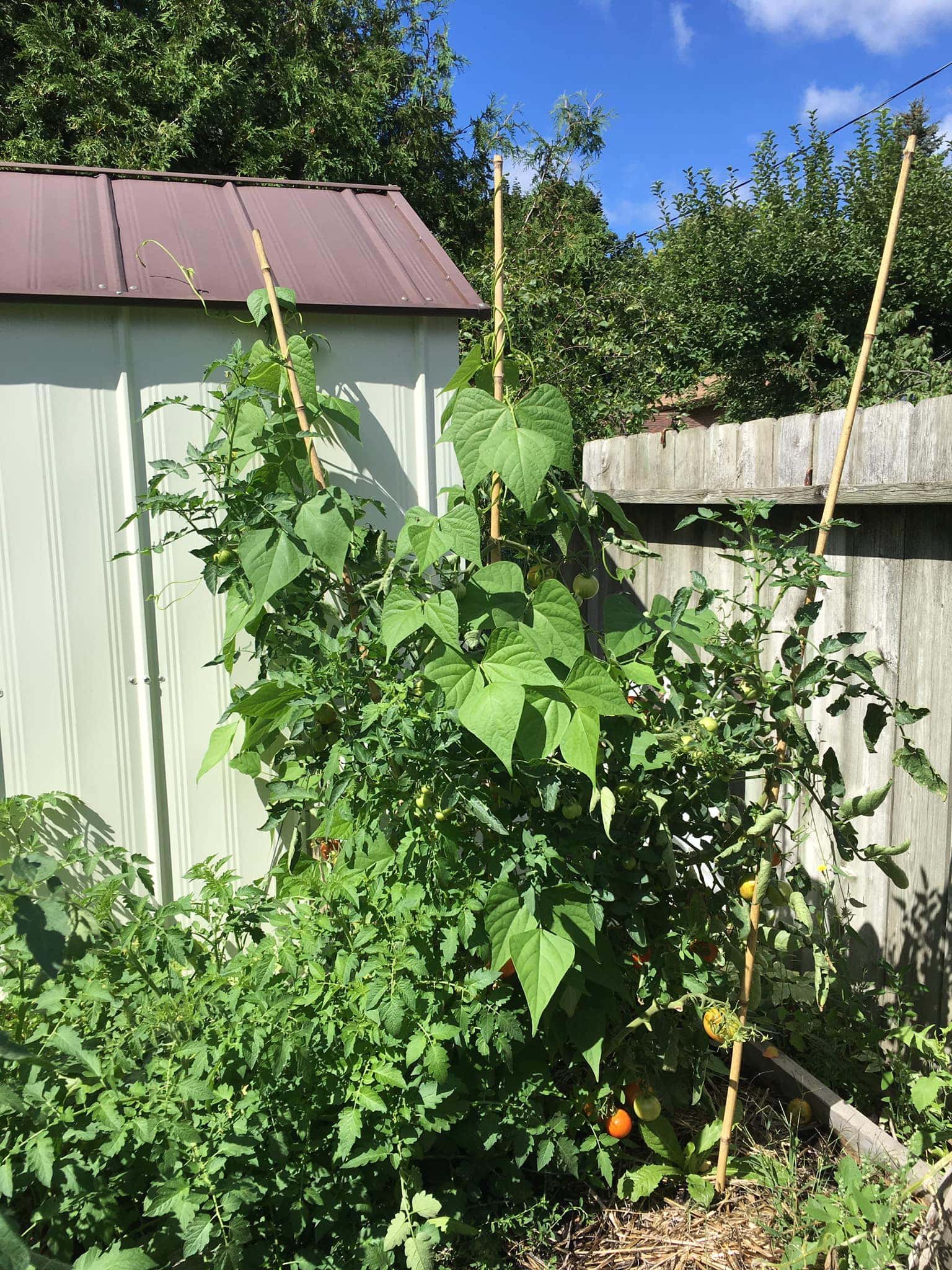Vertical Gardening in our Urban and Rural Food Forests (Zone 4 Ottawa-Gatineau)
Before we moved to the forest, we lived in the Alta Vista / Elmvale Acres area of Ottawa. Everywhere I go I plant food and flowers, and for the seven years we lived there, we always had enough food to share with our neighbours.
One of the keys was using vertical gardening: using as much space above the garden as possible. This is how we did it then, and how we are doing it now in the food forest.
What is Vertical Gardening?
Vertical Gardening is pretty simple - look up, look down and create ways that things can grow. Vertical gardening can mean using things like hanging pots, old baby cribs, broken fences, ladders, etc and creating more space for your food and flowers to grow. It can also mean inviting a kiwi vine or two to climb an old tree or fence.
What can I use for vertical gardening?
Anything! Most of the things I used in Ottawa were found items or things that were in the old shed when we moved in. Here are a pile of ideas that may inspire:
broken fence pieces
old metal bedframes
old children’s playground equipment
bamboo poles
broken baby cribs make great climbers for cucumbers!
broken ladders (you’ll see photos of how we did that!)
an old metal chair that isn’t safe to sit on anymore
re-purpose nets, tent poles, anything!
I have a habit of looking at the end of people’s driveways and have found so many things from that - I once even found a huge number of old tomato cages this way and we still use them 10 years later (not for tomatoes though!).
Grow Food on Cattle Panels and More!
Many years ago, my friend introduced me to Jessica Sowards at Roots and Refuge Farm on YouTube and BAM - I became a cattle panel gardener. We purchased two cattle panels (at that time they were $35!!) in 2018 (?I think?) and they still look as good as new - of course, they moved here with us and we have purchased more over the years (they are about $90 now!!).
The best way we’ve found to set them up is with two or four t-posts from Home Depot or Rona (about $7 each?) and zip ties. We pound them down at least a foot into the soil - and I’ll let the photos show you how it works.
I love using them because they are so strong and I think they will last for the next 40 years! We have grown grapes, cucumbers, butternut squash, beans, loofa and more on them. This year I am adding a climbing rose to one of them so we can collect rose-hips and petals for tea this year.
I don’t have any good photos but we also use smaller panels that are 4x7 feet for fencing around the gardens and as tomato trellises - you will see that in the photos too.
Grow food up fences!
We needed to create some fencing around our kitchen garden due to a golden retriever who insists on eating all the vegetables and because he has a particular love of cucumbers and tomatoes. We turned that challenge into a solution - now we grow beans up most of the fences and the dog only gets the ones on the outside!
Due to our other friends here, the deer, we put up a deer fence in the “BIG” garden which is closer to the “wild forest”. We are also growing vining plants up that and someday there will be kiwis too!
Growing Zucchini Vertically - It’s amazing!
When we lived in Ottawa, I always experimented and tried new things to maximize growing space. Somewhere along the way (probably YouTube!), I learned that zucchini could grow vertically - and it has changed my whole relationship with this amazing food!
This ONE plant in the photo below gave us over 40 zucchinis! I don’t have it in the photo - but when it was smaller, I started inviting it to climb up an old tomato cage and I was pruning the old leaves as it grew. The photo tells the story better than I can - you’ll see what I mean.
Eventually, the plant outgrew the tomato cage and I was afraid being in a cage would break the zuchinni plant - so I did some tomato cage surgery and rested the plant on 2x6s (I don’t know wood sizes) - and it KEPT GROWING!! So I let it crawl across our walkway and asked our tenants to walk around it…and it kept going until frost.
Well, that’s it, folks. One of the things I love about gardening is that it always invites CREATIVITY - and sometimes our garden didn’t look pretty in the spring with all the “clutter” of vertical support, but by the fall it was abundant and beautiful!
Please share your vertical growing tips in the comments - the more you know…
















